A PHP framework helps developers create applications faster, in a more organized, secure and reusable manner, and with the ability to scale up easily.
What is a PHP Framework?
A PHP framework is a platform that allows developers to develop web applications. It provides a structured and standardized way to build and deploy applications, meaning developers can focus on creating the app itself, instead of worrying about low-level code such as security, database management, and routing.
PHP frameworks usually adhere to the principles of MVC (Model-View-Controller) architecture, which divides an application into three interconnected parts. This helps separate the data handling (Model), user interface (View), and application control flow (Controller), making the development process more manageable.
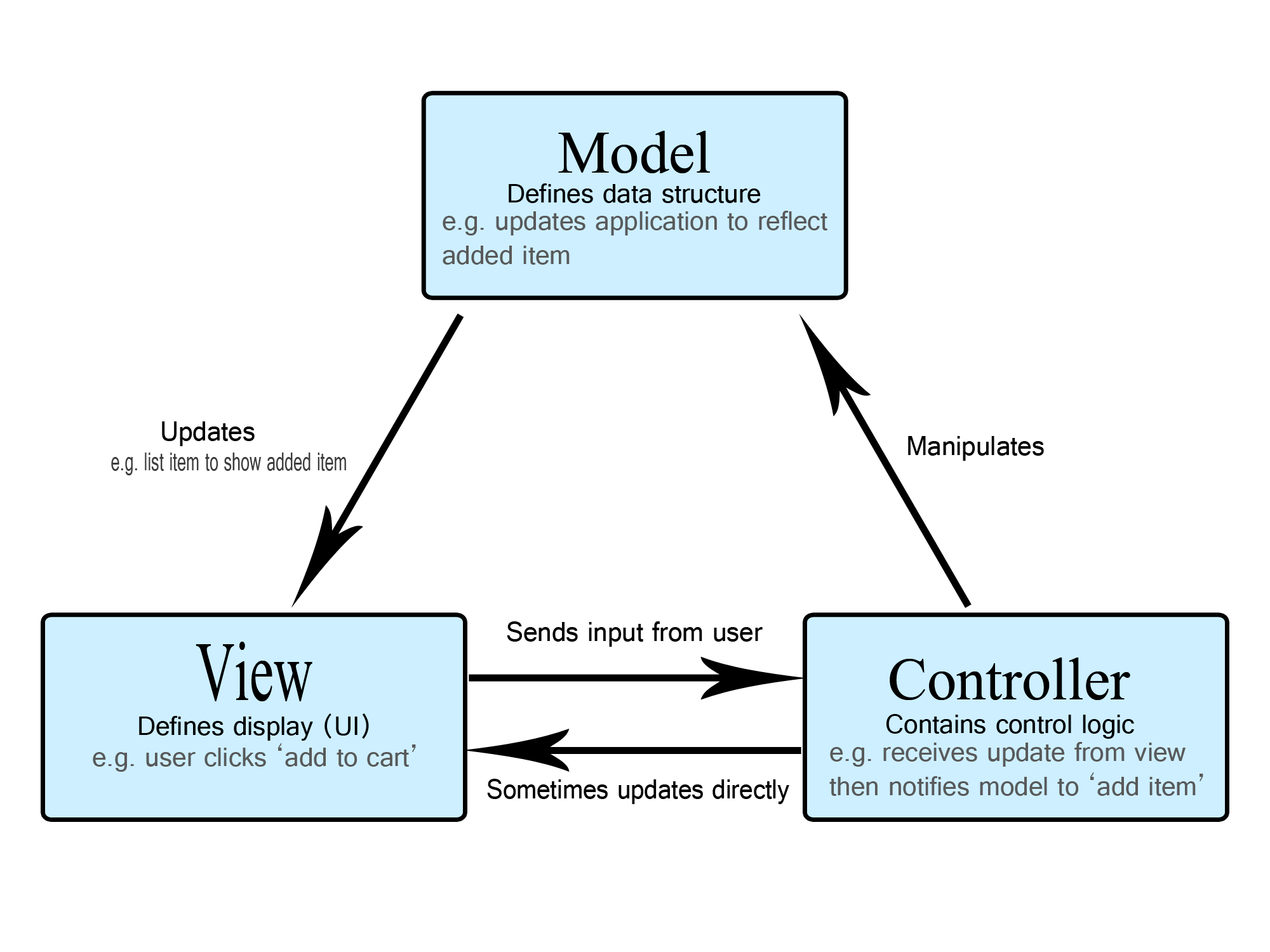
Why use a PHP Framework?
The right framework can make the development process much more enjoyable and efficient. Some benefits of using a PHP framework include:
Efficiency: Frameworks streamline the coding process, eliminating the need to write repetitive code. They often come with libraries and tools for tasks such as form validation, database abstraction, session management, and more, allowing developers to focus on the logic of the application rather than on low-level details.
Security: PHP frameworks come with inbuilt features that help secure the web application against common threats like SQL injection and Cross-Site Scripting (XSS). By using a framework, you can ensure you’re following best practices for web security.
Scalability: Because of their organized and maintainable code base, PHP frameworks are a good choice for applications that require scalability. They provide easy ways to expand your applications as your user base grows.
Community Support: PHP frameworks are generally well-documented and backed by a community of developers who can provide support. This can be invaluable for solving problems, learning best practices, and even adding functionality to the framework.
Testing: Many PHP frameworks come with built-in testing tools, making it easier to conduct unit tests and functional tests on your application. This ensures your codebase is robust and less prone to errors.
Things to know before using a PHP framework
Before starting to use a PHP framework, there are several things you should be familiar with:
- Basic PHP: Understanding the basics of PHP is critical because PHP frameworks are, of course, built using PHP. You should be comfortable with PHP syntax, variables, data types, loops, functions, and object-oriented programming (OOP).
- Understanding of MVC Architecture: Most PHP frameworks use the Model-View-Controller (MVC) pattern. Having a good understanding of this architecture and how it separates concerns in the application will make working with a PHP framework much easier.
- Database Knowledge: Web applications usually require a database. Therefore, knowledge of SQL and experience with relational databases such as MySQL are important. Many PHP frameworks provide an Object Relational Mapping (ORM) layer, so understanding how ORM works can also be beneficial.
- Web Development Basics: It’s essential to understand the basics of web development, including HTTP, HTML, CSS, and JavaScript. You should understand how browsers communicate with servers and how web pages are constructed and styled.
- Version Control Systems: Git is a common version control system used in web development. Knowledge of version control systems will help you manage changes to your code and collaborate with other developers. 20i managed hosting comes with an integrated Git manager.
- Understanding of OOP (Object Oriented Programming): PHP frameworks use the principles of OOP, such as classes, objects, inheritance, and encapsulation, so it’s essential to have a solid understanding of OOP concepts.
- Package Managers: Knowledge about Composer (a package manager for PHP) can be beneficial as it is often used to handle dependencies in PHP projects.
- Automated Testing: If you’re going to use a PHP framework, understanding automated testing will be beneficial, as testing is a significant part of modern software development, and most PHP frameworks come with built-in testing capabilities.
What should you look for in a PHP framework?
The framework should be easy to install and set up. It should have clear, understandable documentation and a straightforward coding style. Platforms such as our Laravel Hosting help to kick-start development.
A large, active community can provide valuable help when you run into issues. It also indicates that the framework is likely to continue to be maintained and updated.
Look for a framework that emphasizes security and includes features for handling common security issues such as SQL injection and XSS attacks.
Consider the speed and efficiency of the framework. This includes not just the speed of the framework itself, but also how easy it is to cache results, optimize your code, etc.
If you expect your application to grow over time, choose a framework that’s designed to handle large applications and that makes it easy to add new features as your application grows.
Depending on your project requirements, you may need a framework that supports a specific database system, or one that offers a robust ORM for working with databases.
Some frameworks are very flexible and allow you to easily add or remove components as needed. This can make your application more maintainable and easier to understand.
If you plan to use test-driven development or just want to ensure your code is working correctly, choose a framework that has strong support for testing.
You don’t want to build an application on a framework that becomes obsolete or is not maintained. Check the history of updates and improvements of the framework and ensure that it’s likely to be supported for the foreseeable future.
If you’re just getting started, you might prefer a simpler framework, even if it doesn’t have as many features. On the other hand, a more complex framework might be worth the investment in learning time if it provides the features you need.
Popular PHP Frameworks
Laravel
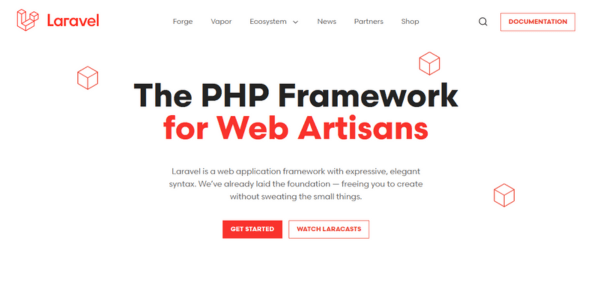
Laravel uses the MVC architecture. It provides a clean and elegant syntax and includes tools for tasks such as routing, authentication, sessions, caching, and unit testing.
- Pros: Laravel offers a robust set of tools and a large ecosystem that includes hosting and deployment platform. Its syntax is intuitive and it also includes a powerful ORM called Eloquent for database operations. Laravel’s community is extensive, and there are many resources available for learning it.
- Cons: Laravel can be considered heavy for small, simple projects. It also has a relatively steep learning curve for beginners.
Symfony
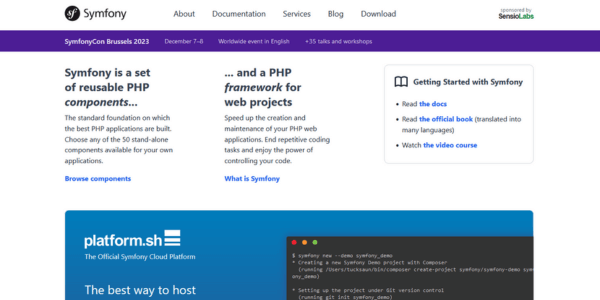
Symfony is a flexible, scalable yet powerful PHP framework for MVC applications. It’s known for its stability and performance and is used by many large-scale websites and applications.
- Pros: Symfony is extremely flexible and can integrate with larger projects like Drupal. Symfony components are reusable PHP libraries that you can complete different tasks with, such as form creation, object configuration, routing, authentication, templating, and many others.
- Cons: Symfony can be overwhelmingly complex for beginners, and it could be considered overkill for small, simple projects. The learning curve is steep, and it might be harder to find resources or tutorials for Symfony compared to Laravel or CodeIgniter.
CodeIgniter
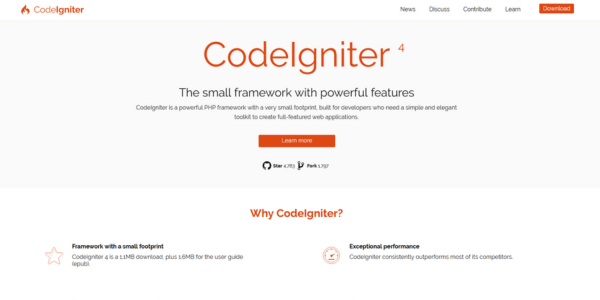
CodeIgniter is a lightweight PHP framework that’s initially released in 2006. It’s known for its small footprint and minimal configuration.
- Pros: CodeIgniter is easy to learn and use, and it’s an excellent choice for beginners. It’s lightweight and performs well, and it requires nearly zero configuration. It also has good security features.
- Cons: CodeIgniter releases tend to be less frequent, which can be a disadvantage for some developers. Its database abstraction is less powerful compared to some other frameworks.
Yii
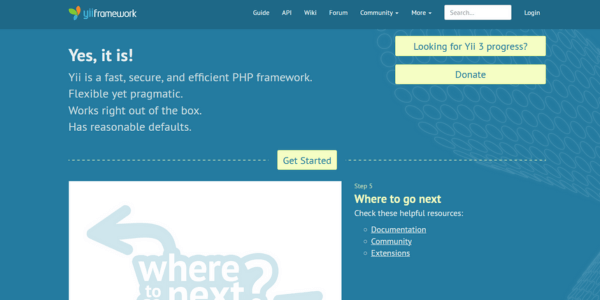
Yii is a high-performance, component-based PHP framework for rapidly developing modern Web applications. It’s integrated with jQuery and it comes with a set of AJAX-enabled features.
- Pros: Yii excels in performance and is faster due to its extensive use of lazy loading technique. It’s highly extensible, and you can customize nearly every piece of the core’s code.
- Cons: Yii’s active record implementation is not as intuitive as some other frameworks’. The community is smaller, which means less support when you run into issues.
Laminas Project (previously Zend Framework)
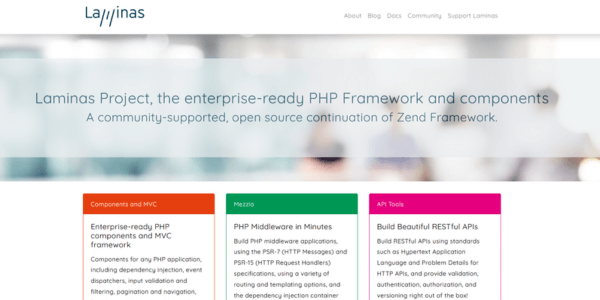
Laminas is a robust and stable PHP framework packed with a lot of configuration options. It’s often used for building enterprise-level applications.
- Pros: Highly customizable and abides by PHP best practices. It’s ideal for complex, enterprise-level projects.
- Cons: A steep learning curve and may be overwhelming for beginners. It’s also considered somewhat heavy compared to other frameworks.
CakePHP
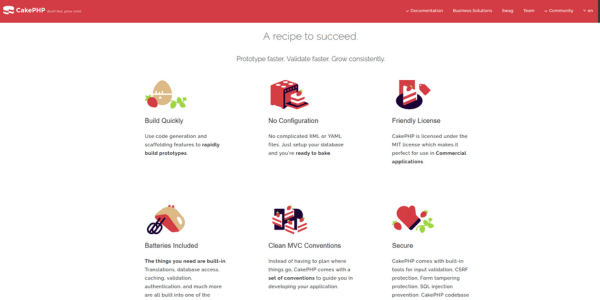
CakePHP is an MVC-based framework that offers a robust set of tools for building web applications.
Pros:
- Rapid Development: Due to its conventions and built-in tools, you can quickly get an application up and running.
- Security: Offers several built-in security features such as input validation, form tampering protection, and more.
- Batteries-included philosophy: Provides most of what you need (from the database layer to views) out of the box.
- Active Community: It has a vibrant community and a lot of plugins available, which can further speed up development.
Cons:
- Convention Over Configuration: While its convention-based approach speeds up development, it might feel restrictive to developers who prefer having more control over configuration.
- Performance: CakePHP is feature-rich, but this can sometimes come at the expense of performance, especially when compared to more lightweight frameworks.
Slim
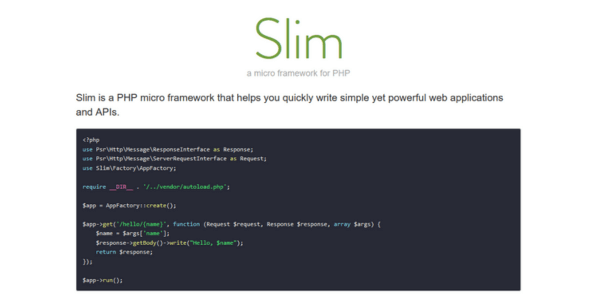
Slim is a micro-framework, which means it provides the minimal tools and structure needed to build web applications quickly.
Pros:
- Minimalistic & Lightweight: Being a micro-framework, Slim is lightweight and doesn’t carry the overhead of larger, full-stack frameworks. This can often lead to better performance.
- Flexibility: You’re not tied down by conventions or pre-set directory structures. You can structure your application any way you want.
- Quick Setup: Great for rapid development, especially when you need a simple REST API or web service.
- Middleware Support: Middleware lets you run code before and after your Slim app to modify the request and response objects, adding a layer of flexibility.
Cons:
- Not Feature-Rich: Doesn’t come with the myriad features or tools provided by full-stack frameworks like Laravel or Symfony. You might need to integrate third-party tools or write custom code for more complex functionalities.
- Learning Curve: While Slim itself is simple, if you’re building a complex application, you may need to integrate with other libraries or tools, which could have their learning curve.
- Scalability: For more complex applications, a micro-framework like Slim may require more effort in terms of structure and organization as the project grows.
Click here to find out more about our PHP hosting.
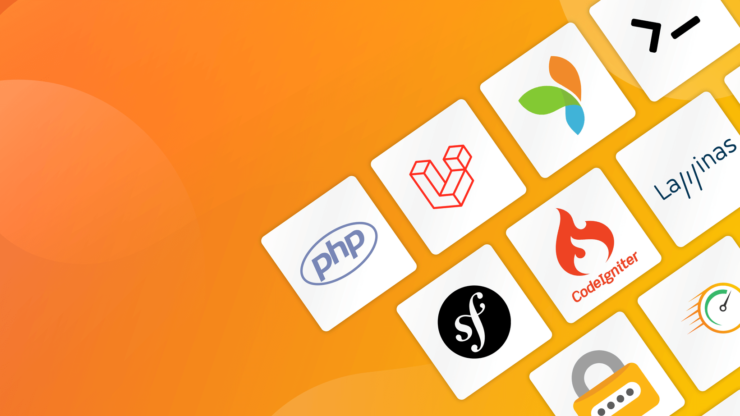
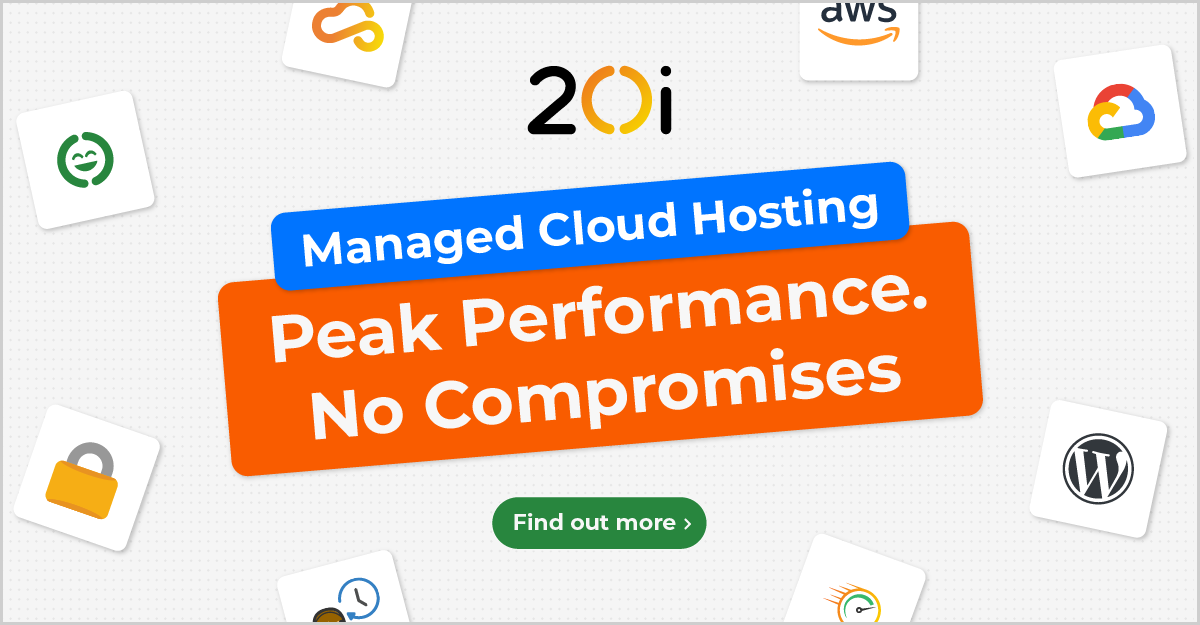

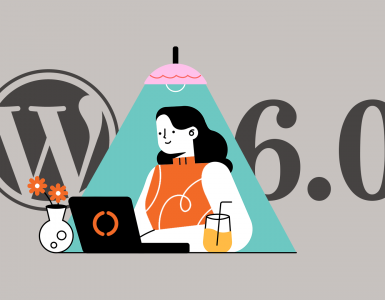




The development of frameworks, which are frequently difficult to understand, highlights a widespread issue. Many frameworks lack a solid architectural base, as they are frequently created by developers who are fixated on their coding habits and have little regard for theoretical underpinnings. This phenomena is analogous to musicians succeeding at performing while having inadequate grasp of music theory. However, it is their chosen route, and they are not obligated to pursue it. It is critical to understand coding as a sort of freedom with inherent limitations. To really grasp an issue, one must investigate its root. PHP 8 excels in a variety of areas, however adding too many abstraction levels might complicate things, not because of PHP, but because of the layers put on top of it.
Is it feasible to build a web application in PHP without utilizing a framework?
Yes, this is conceivable, but depending on the app’s complexity, you are unlikely to find a customer willing to pay for it. Everything will have to be created from scratch, including user administration and permissions, crud, frontend functionality, database access, and sessions. The list is pretty extensive. I worked on an app for two years and completed it using CodeIgniter as the framework. Without it, the period may have easily been four years (for a single developer). No client will be willing to pay the price and wait that long. You can also use upMVC: noFramework to develop MMVC – based PHP applications.
You could use the mvcspa instead which is a minimalist PHP platform without all the overhead of Laravel | CodeIgniter & their performance issues.
The mvcspa allows you with just php, sql, html & javascript , built-in PDO CRUD class as an ORM to write professionally written web applications in a very short time where any PHP developer could maintained.
You can maintain your SQL tables with community-based SQLYOG.
Where if needed you could modify the platform yourself to accommodate your needs, and would not be locked into proprietary syntax, voluminous framework with a huge learning curve.
Site: mvcspa.com Documentation: mvcspa.net
Keep it simple, do it quickly, run it efficiently